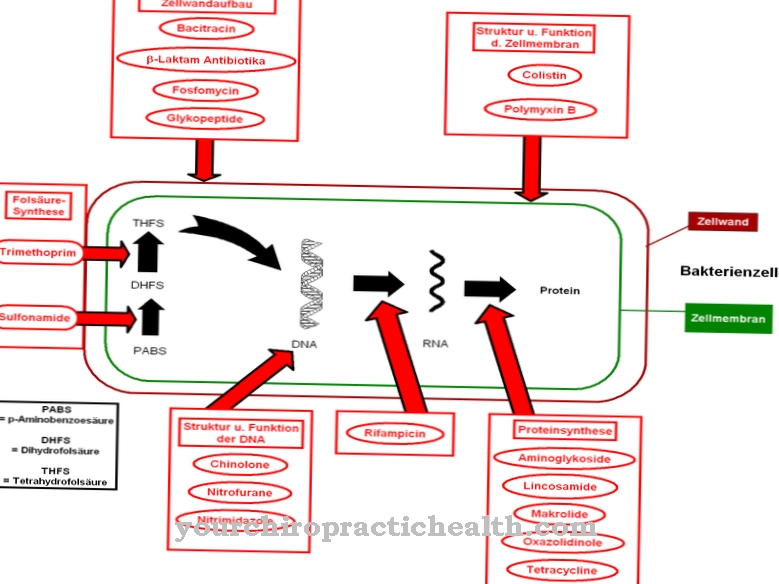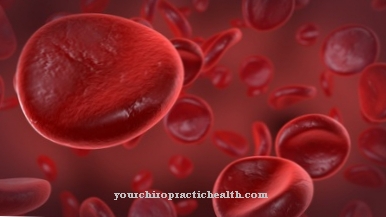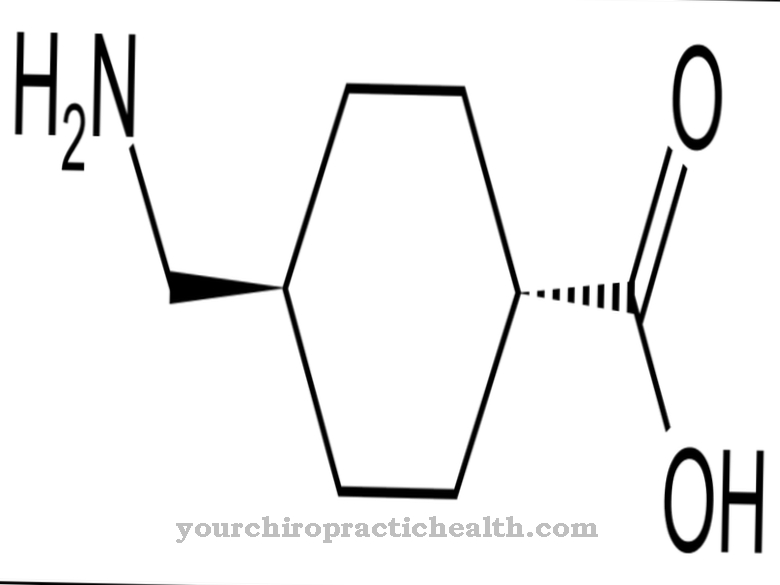Zuclopenthixol is a neuroleptic that is used to treat various mental illnesses such as acute schizophrenia. It inhibits the neurotransmitters serotonin and dopamine in the human brain and, as a result, has an antipsychotic effect. The administration of the active ingredient should always take place in consultation and under constant supervision of a doctor. Possible side effects include tiredness, diarrhea, tremors, vomiting and changes in blood values.
What is zuclopenthixol?
The active ingredient zuclopenthixol is a chemical, organic and polycyclic compound. Polycyclic compounds are chemically built up through several rings. Zuclopenthixol belongs to the class of thioxanthenes and is a neuroleptic. The chemical structure of a three-membered ring is characteristic of thiocanthenes. In addition to flupentixol and chlorprothixen, zuclopenthixol is one of the most important representatives of this group.
The active ingredient is a so-called receptor antagonist for the messenger substances serotonin and dopamine. In pharmacology, antagonists are all those substances that inhibit their opponent in their effect. Zuclopenthixol was first launched in 1986. The active ingredient appeared on the market under the trade name Clopixol®.
Pharmacological effect on the body and organs
Zuclopenthixol blocks the neurotransmitters serotonin and dopamine in the central nervous system. It binds to the receptors of these messenger substances. As a result, dopamine and serotonin can no longer dock and are inhibited by the antagonistic drug. This has an antipsychotic effect.
The effect of the neuroleptic is directly dependent on the dosage of the drug. With a low dose, confusion and agitation in dementia can be alleviated. In higher doses, severe states of excitement as well as acute and chronic schizophrenia can be treated. The mechanisms of action influence mood and thinking and can alleviate aggressiveness, delusions, hallucinations and psychomotor excitement.
However, zuclopenthixol not only affects the human nervous system. The medicine has an accelerating effect on the heartbeat and may cause palpitations. Other organs such as the skin, liver, intestines and stomach are also affected by zuclopenthixol.
The body absorbs zuclopenthixol quickly. The concentration of substances in the blood is highest after three to four hours. After about twenty hours, half of the active ingredient is broken down again.
Medical application & use for treatment & prevention
Zuclopenthixol is approved for the medical treatment of several clinical pictures. In addition to chronic schizophrenia, indications are also psychomotor agitation, aggressive behavior in dementia or mental disabilities, and manic mental states.
The drug should not be prescribed if the patient may be allergic to zuclopenthixol. In addition, acute symptoms of intoxication from alcohol or sleeping pills, adrenal tumors, circulatory shock and changes in the blood count are contraindications.
Zuclopenthixol is available in three different forms for treatment. In addition to the injection solution for acute treatment, there is also a depot form of the active ingredient on the market. Depot drugs are usually administered into a specific depot, such as muscle tissue, bypassing the intestine. The active ingredient is also commercially available in tablet form for oral administration.
Before giving zuclopenthixol, the doctor must check the patient's blood count. If there are significant deviations from the target blood value, the drug must not be taken. During treatment with zuclopenthixol, blood counts and liver values should be checked regularly. In addition, cardiac activity should be monitored at regular intervals with the help of an EKG. If the patient is treated with zuclopenthixol over a longer period of time, the success of the therapy must be continuously documented and the dose may have to be reduced.
You can find your medication here
➔ Medicines to calm down and strengthen nervesRisks & side effects
Patients who suffer from heart or kidney damage are more likely to have blood abnormalities and should therefore be closely monitored. Particular caution is required when taking zuclopenthixol if there is an increased risk of stroke or if a close relative has already had venous blood clots.
The active ingredient is not recommended for the treatment of children. Treatment is also not recommended during pregnancy. In this case, the attending physician must carefully weigh the risk-benefit ratio in each individual case.
Possible side effects of the drug are more common in earlier stages of treatment. Dry mouth, tiredness, stiff muscles, dizziness, tremors and the urge to move are quite common. Diarrhea, vomiting, hives, depression and loss of appetite are also possible. Derailments in blood values or anaphylactic reactions are less common.
Caution should be exercised when taking painkillers or sleeping pills at the same time. In combination with zuclopenthixol, breathing may become more flat. Alcohol should be avoided while taking it.



























